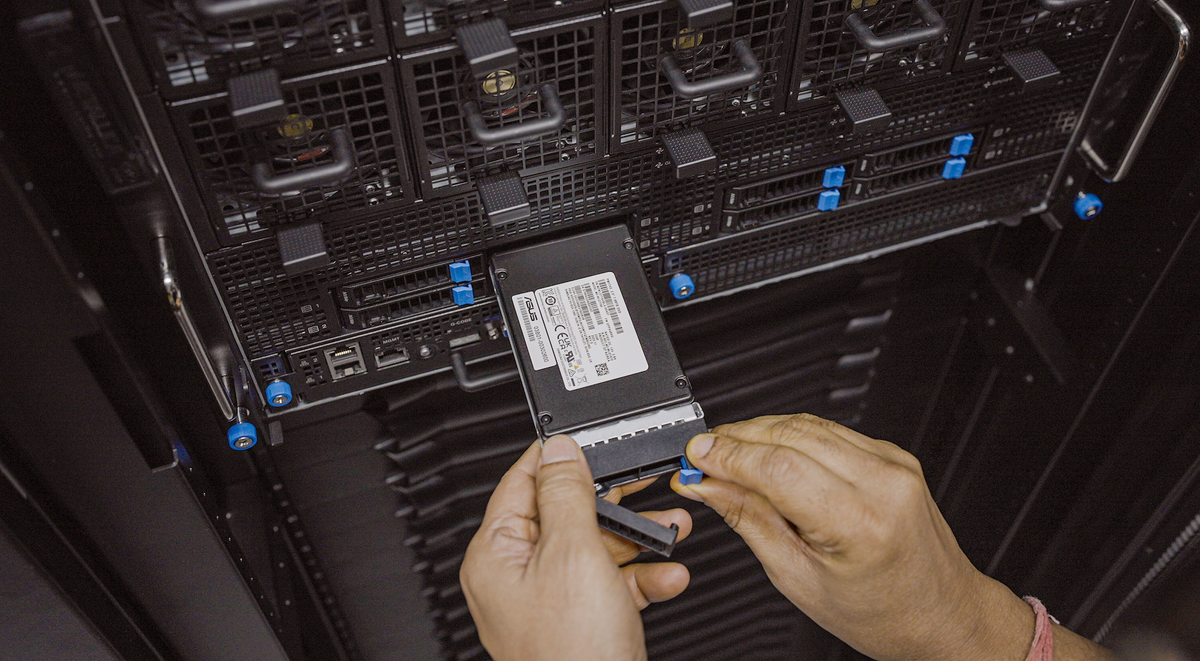Don't talk to Ashton Hall about his mouth tape. You might already know the mega-fitfluencer for his timestamped morning routines, many of which start as early as 3:55 a.m. But if not, all you need to know is that Hall's tight schedule consists of everything from ice water facials to pensive journaling . . . and it's taking the internet by storm. While Hall's regimen is jam-packed with bizarre wellness practices (should we all be rubbing banana peels on our face?) there's one treatment in particular that warrants further investigation: mouth taping.
While there are several aspects to Hall's videos that give us pause, mouth taping stands out for more than its nightmarish appearance. Even before Hall went viral, plenty of TikTok users swore by the benefits of mouth taping, claiming that the hack can help you take in more oxygen, reduce snoring, and improve the overall quality of your sleep. Still, this is TikTok — not a legit medical source. So is mouth tape really as good as these influencers say?
To provide more clarity, we asked experts to weigh in on the mouth taping trend. Read on to see what they think about the potential benefits, risks, and misconceptions spread on social media.
Experts Featured in This Article:
Chris Winter, MD, is a neurologist, sleep expert and host of the "Sleep Unplugged with Dr. Chris Winter" podcast.
James McGuirk, MD, is an assistant professor of sleep medicine at Vanderbilt Neurology in the Sleep Medicine Division.
Ulysses Magallang, MD, is the director of the sleep disorders program at The Ohio State University College of Medicine.
What Is Mouth Taping?
Mouth taping is as simple as it sounds: You use tape to keep your mouth closed, typically sticking one piece of tape vertically along the middle of your mouth. It's most commonly used during sleep, although some people also use mouth tape while exercising to try to force themselves to breathe through their nose, says sleep expert Chris Winter, MD. "Individuals who engage in this practice generally do so because of the impression that it improves sleep."
Breathing through your nose all night is the main goal of mouth taping, says sleep expert James McGuirk, MD. "The idea behind this is that when your mouth is closed while sleeping, your oropharyngeal anatomy stays together and tends to help support itself better so that the airway closes off less," he says. "This can potentially help with snoring as well as mild obstructive sleep apnea." But mouth tape isn't exactly as beneficial as it's made out to be.
Mouth Taping Benefits
This is where it gets tricky. TikTok is packed with people who swear by mouth taping for a slew of reasons, but "only a few have been actually validated with any sort of research," Dr. McGuirk says. While mouth taping might help with mild snoring or mild obstructive sleep apnea, he says any benefits beyond that are require further research.
"Although there are studies of mouth taping, the research involves very few patients — most of the studies are not well done," says sleep expert Ulysses Magalang, MD. Case in point: One small 2014 study found that those who taped their mouths snored less . . . but it only involved 30 people. Another small study of 50 people published in the journal Respiratory Medicine found that mouth taping had no real effect in asthma control for people with the condition. "There are a few studies that seem to suggest that mouth taping can indeed decrease snoring," Dr. Magalang adds. "But the effect on moderate or severe sleep apnea and other conditions isn't clear."
While mouth taping may help some people anecdotally (including the influencers on your FYP), it certainly does not work for everyone. In fact, one 2022 study of 10 people with sleep apnea found that some participants kept trying to breathe through their mouths, even when they were taped shut.
Is Mouth Taping Dangerous?
It can be. Dr. Winter points out that there is an aspiration risk (meaning, you could breathe in something you shouldn't) and that mouth taping could mask more serious sleep problems. Taping your mouth shut may also cause anxiety, Dr. McGuirk says. You could even potentially suffocate. "If you tape your mouth and you have an obstruction in the nose, we don't know what the effect would be," Dr. Magalang says. On less severe level, tape used for mouth taping has the potential to irritate your skin, Dr. McGuirk points out.
Best Mouth Tape for Sleeping
There is no one tape that TikTokers or doctors recommend for mouth taping. Some reviews suggest makeup tape; others use sports tape. If you're going to try mouth taping, "you should look for tape that is medical or surgical tape," Dr. McGuirk says. "The tape should be just big enough to bridge over the lips and should not cover the entire mouth."
But, again, doctors don't suggest that you try this sleep hack. "I do not generally recommend it," Dr. Winter says. "I think everyone considering the practice should consider a sleep study prior to doing so and working with a qualified sleep clinician."
Dr. Magalang, agrees, urging people to see a doctor if they have symptoms of sleep apnea, which includes excessive snoring, feeling tired during the day after you got a good night's sleep, someone noticing that you stop breathing during sleep, or you have morning headaches. Our main takeaway? Let's just leave the mouth taping with the fitfluencers.
— Additional reporting by Chandler Plante
Korin Miller is a writer specializing in general wellness, health, and lifestyle trends. Her work has appeared in Women's Health, Self, Health, Forbes, and more.
Chandler Plante (she/her) is an assistant health and fitness editor for PS. She has over four years of professional journalism experience, previously working as an editorial assistant for People magazine and contributing to Ladygunn, Millie, and Bustle Digital Group.

 8 months ago
155
8 months ago
155

:quality(85):upscale()/2025/11/28/816/n/1922507/96dfa0316929eb7d6009c4.58082318_.png)
:quality(85):upscale()/2025/11/28/911/n/1922564/6007a1e4692a0b7e0754d6.70992304_.jpg)





 English (US) ·
English (US) ·